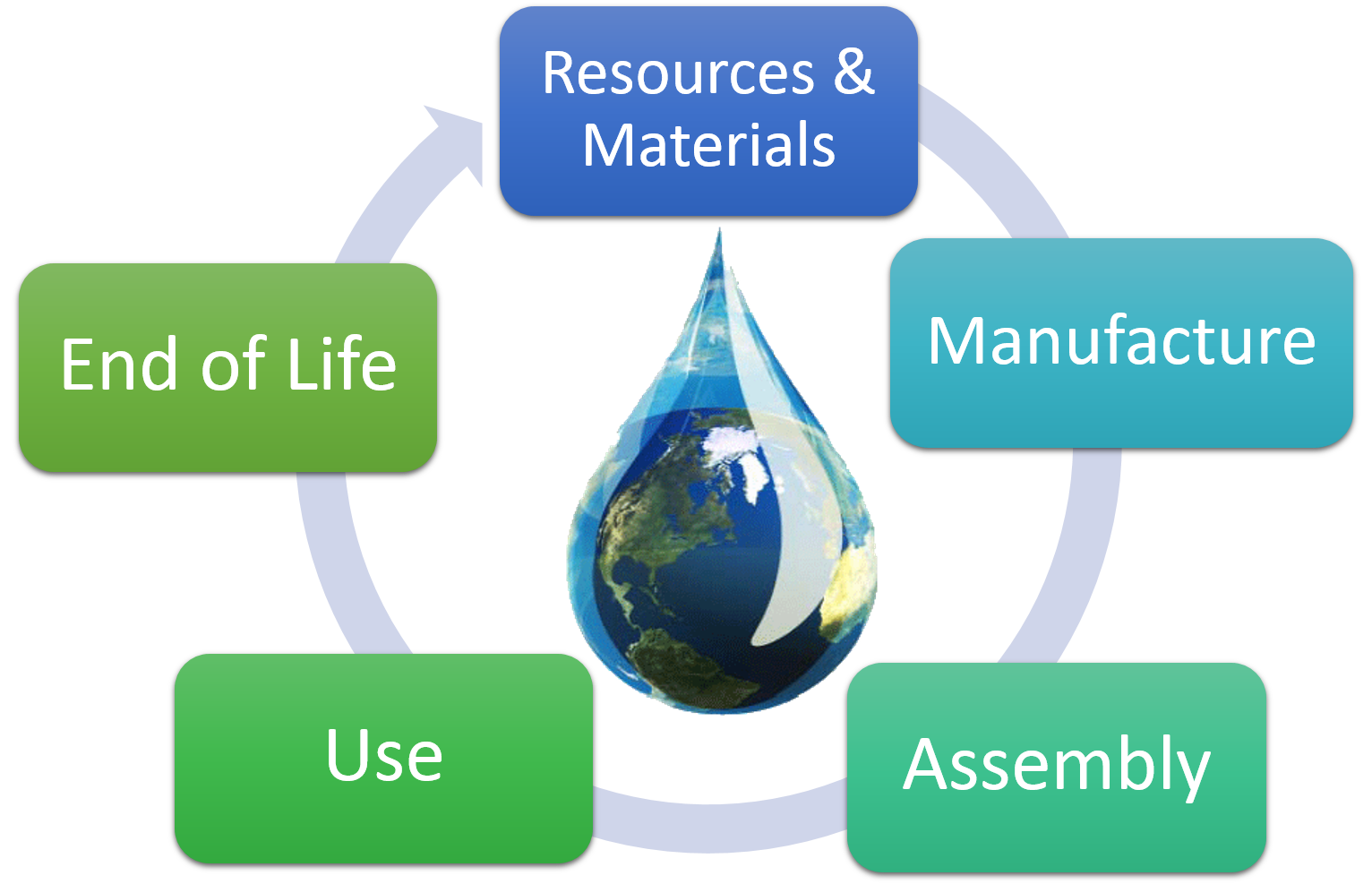Project B1-2: Spatially- and temporally-informed life-cycle assessment of urban water systems
Arpad Horvath, PhD
University of California – Berkeley
Civil & Environmental Engineering
As water infrastructure in many cities nears the end of its decades-long useful lifespan, now is an ideal time for managers and planners to focus on their systems’ resiliency, sustainability, and adaptability to long-term supply and demand changes that may result from climate change, population growth, urbanization, and other factors.
It is critical to proactively and rigorously evaluate potential negative consequences as well as co-benefits associated with innovative water strategies before investments are made as they may affect society for years to come.
This project will use life-cycle assessment to evaluate the energy and resource inputs and environmental outputs associated with urban water innovations to holistically analyze design decisions and characterize tradeoffs associated with technology selection, design life, scale, and connections between urban water networks (e.g., water supply, wastewater, and/or stormwater) as well as to energy systems.
DATA NEEDS
A detailed list of specific data needs will be provided to case study utilities. However, general needs include:
- Overall system operations and interactions for urban water and energy systems
- Aggregated urban water infrastructure inventory (pipe, pumps, tanks, etc.)
- Operational materials inventory (chemicals, electricity, and fuels)
DATA USE
Data will be used as inputs to the WEST and WWEST decision-support tools to evaluate energy consumption, greenhouse gas emissions, and other environmental implications of urban water systems using life-cycle assessment.
More information on the decision support tools is available at: http://west.berkeley.edu/
This project will estimate energy consumption, greenhouse gas emissions, and other air, water, land emissions for UWIN’s case study cities using life-cycle assessment for current baseline operations and planned and potential future changes, including strategies identified in Project B1-1.
The results can be compared to other systems’ performance. We also may identify areas where efficiency, sustainability, and/or resiliency can be improved and identify tradeoffs between urban water system operations as well as opportunities for resource recovery.
Models & Tools
Life-Cycle Assessment
Life-cycle assessment (LCA) is a methodology developed to systematically quantify the material and energy inputs and outputs from a product, process, or system throughout all its stages of life. It uses a cradle-to-grave (or, in some cases, cradle-to-cradle) perspective, evaluating the design process, the entire supply chain associated with manufacturing, transportation, the use phase, and waste management.
LCA has been applied to urban water systems previously to:
- Identify major contributors to water systems’ energy profile
- Compare of the effects of different treatment options
- Assess the impact of changing operational control parameters
- Evaluate of the effects of aging infrastructure
Decision Support Tools
Decision-support tools developed by the project team, the Water-Energy Sustainability Tool (WEST) and the Wastewater-Energy Sustainability Tool (WWEST), will be used in the study.
WEST was developed to evaluate the life-cycle energy and environmental effects of potable and recycled water systems. It evaluates infrastructure and chemical manufacturing as well as energy production. It also allows the user great flexibility when analyzing electricity and fuel production. WWEST is intended to quantify similar life-cycle effects of wastewater systems.
More information about LCA, the WEST and WWEST tools, and a description past work by Berkeley researchers on urban water system is summarized at: http://west.berkeley.edu/
Journal Articles
Gursel, A. P., Chaudron, C., Kavvada, I. and Horvath, A. (2020), “Reduction in Urban Water Use Leads to Less Wastewater and Fewer Emissions: Analysis of Three Representative U.S. Cities.” Environmental Research Letters, https://doi.org/10.1088/1748-9326/ab8dd8
Chaudron, C., Gursel, A. P., Kavvada, I. and Horvath, A. (2020), “Water Use and Electricity-for-Water Savings Trends in Three Representative U.S. Cities.” Environmental Research Letters, https://doi.org/10.1088/1748-9326/ab97cb
Updated: July 2020
Related Materials
 Arpad Horvath PhD – Principal Investigator
Arpad Horvath PhD – Principal Investigator
Professor
Civil and Environmental Engineering
University of California – Berkeley
Voice: (510) 642-7300
Email: horvath@ce.berkeley.edu
Arpad Horvath is a Professor in the Engineering and Project Management Program and in the Energy, Civil Infrastructure and Climate Program in the Department of Civil and Environmental Engineering at UC Berkeley. He has Ph.D. and M.S. degrees in Civil Engineering from Carnegie Mellon University, and a Diploma in Civil Engineering (Structural Engineering major, Construction Engineering and Management minor) from the Technical University of Budapest (Hungary). His research interests are in developing methods and tools for life-cycle assessment of civil infrastructure systems and other industries. His research has focused on the environmental implications of transportation systems, buildings, construction, water and wastewater systems, and various service industries, and life-cycle assessment modeling using hybrid methods, environmentally augmented economic input-output analysis, and environmental performance measurement.
 Jennifer Stokes, PhD – Research Scientist
Jennifer Stokes, PhD – Research Scientist
Civil and Environmental Engineering
University of California – Berkeley
Email: jrstokes@cal.berkeley.edu
Jennifer Stokes is a research engineer at the University of California at Berkeley. She has been working on water and wastewater systems analysis, focusing on the water-energy-greenhouse gas nexus since 2001. Her research is focused on improving water, energy, and carbon efficiency of utility operations cost-effectively, often using life-cycle assessment (LCA) methodology. She has developed several decision-support tools to conduct these analyses, including WESTWeb. Her research with Professor Arpad Horvath has been funded by the National Science Foundation (NSF) Graduate Research Fellowship, the Renewing the Nation’s Urban Water Infrastructure (ReNUWIt) NSF Engineering Research Center, the California Energy Commission, and the California Department of Toxic Substances Control. She has also advised two student intern projects funded by the California State Water Resources Control Board. She received her undergraduate degree from the Georgia Institute of Technology and her master’s and doctoral degrees from UC Berkeley, all in in Civil and Environmental Engineering. She is affiliated with the Berkeley Water Center. She has also worked as a design engineer at an environmental engineering consulting firm in Oakland
